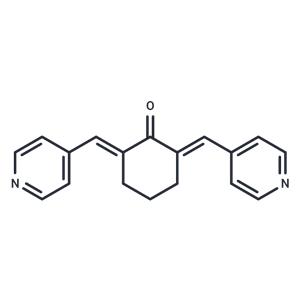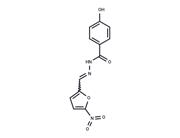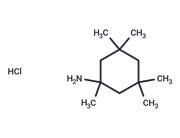| Name | SC66 |
| Description | SC66 is a AKT inhibitor in HepG2, HA22T/VGH, and PLC/PRF/5 cells (IC50: about 0.75 μg/ml, at 72 h). |
| In vitro | HepG2, HA22T/VGH, and PLC/PRF/5 cells had similar IC50 values of approximately 0.85 and 0.75 μg/ml at 48 and 72 hours for SC66, respectively. The most resistant cell line was Huh7(IC50: 3.1/2.8 μg/ml, at 48/72 h), while the Hep3B cell line was found to be the most sensitive, (IC50: 0.75/0.5 μg/ml, at 48/72 h). SC66 reduced cell viability in a time- and dose-dependent manner inhibited colony formation and induced apoptosis in HCC cells. SC66 treatment led to a reduction in total and phospho-AKT levels. In addition, SC66 induces the production of reactive oxygen species (ROS) and DNA damage. SC66 significantly potentiates the effects of both conventional chemotherapeutic and targeted agents, doxorubicin and everolimus, respectively. [1] |
| In vivo | In xenograft models, SC66 can inhibit tumor growth of Hep3B cells. |
| Storage | Powder: -20°C for 3 years | In solvent: -80°C for 1 year | Shipping with blue ice. |
| Solubility Information | DMSO : <1 mg/mL (insoluble or slightly soluble)
|
| Keywords | Akt | PKB | Protein kinase B | Inhibitor | inhibit | SC66 | Apoptosis | SC-66 | SC 66 |
| Inhibitors Related | Stavudine | 5-Fluorouracil | Acetylcysteine | Kaempferol | Myricetin | Sodium 4-phenylbutyrate | L-Ascorbic acid | Dextran sulfate sodium salt (MW 4500-5500) | Metronidazole | Sorafenib | Tributyrin | 2,3-Butanediol |
| Related Compound Libraries | Reprogramming Compound Library | Bioactive Compound Library | Cancer Cell Differentiation Compound Library | HIF-1 Signaling Pathway Compound Library | Kinase Inhibitor Library | Anti-Breast Cancer Compound Library | Inhibitor Library | Anti-Aging Compound Library | Bioactive Compounds Library Max | Neuronal Differentiation Compound Library |

 United States
United States



